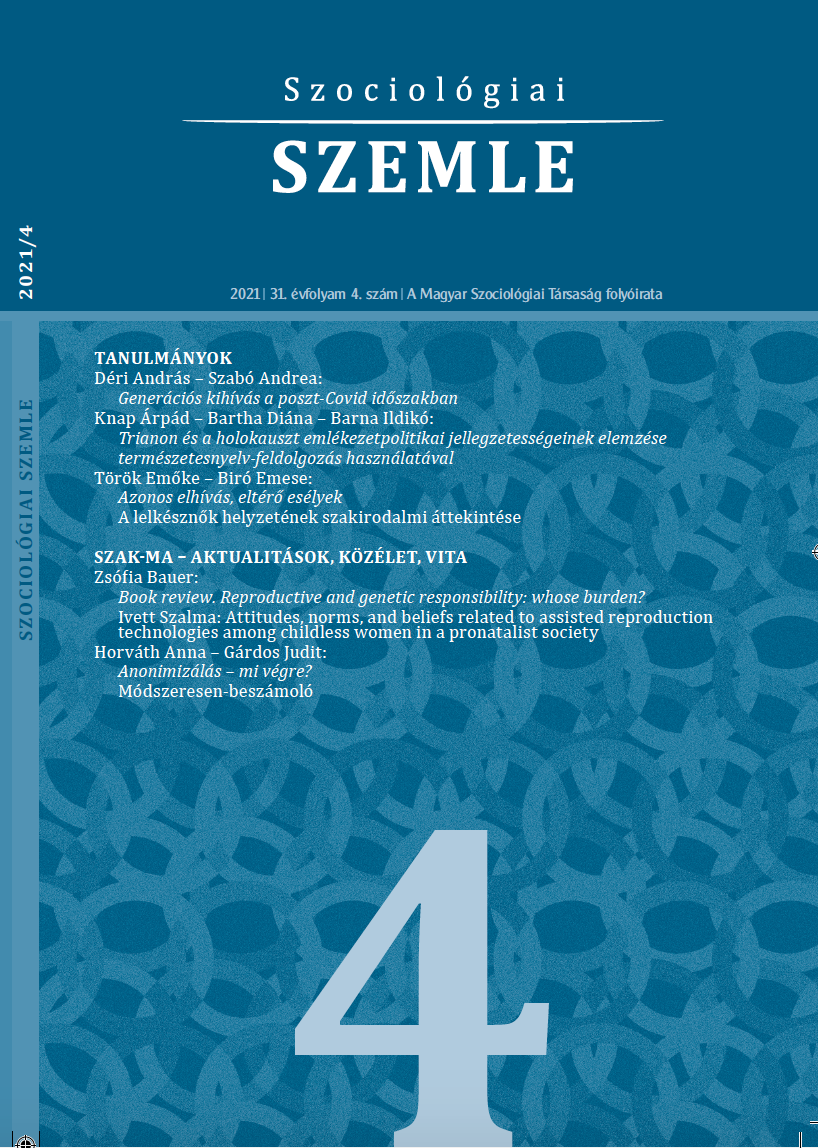Analysing the memory politics of Trianon and the Holocaust using natural language processing
Abstract
2020 marked the 100th anniversary of the Treaty of Trianon and the 75th anniversary of the liberation of World War II death camps. These two historical events are central to national memory and continue to shape our identity today, while remaining among the most divisive issues, separating ideological and political sides. In our research, we analyse a corpus of over twenty thousand articles collected from the Hungarian online press – categorised by their political orientation – using Natural Language Processing methods, including topic modelling, and qualitative text analysis. In our paper, the occurrence and characteristics of the concepts of heroization, victimisation, culpabilisation and cancellation were analysed in the identified topics, showing the narrative in which each political side discusses these two subjects. The qualitative part of our analysis was compared with the framework of papers on Hungarian memory politics, displaying the current form of the traditionally present passive victimhood, the confusion in the roles of victims and heroes, the taboo narratives of Trianon and the Holocaust, and the lack of culpabilisation. In the role of “heroes”, most often soldiers of the world war and Hungarians living abroad appear. The victim narrative is almost inseparably connected to the image of heroes: Hungarians living outside Hungary’s borders appear in both roles, while the passive victim role is borne by the Hungarian people as a whole. In our paper, the lack of cancellation is illustrated by a current political example. Except for the far right, there is no uniform narrative connected to culpabilisation. Overall, Trianon is associated with a passive victimhood in the articles analysed, while in the context of the Holocaust, the narrative of each political side is still taking shape.





